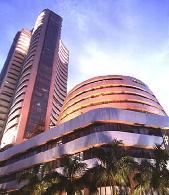 The Income Tax Department has decided to scrutinise all returns filed by brokers and market players who seek rebate after paying the securities transaction tax (STT).
The Income Tax Department has decided to scrutinise all returns filed by brokers and market players who seek rebate after paying the securities transaction tax (STT).
The department, in its tax returns for 2008-09 that is assessed in the current financial year, found that most of brokers or market entities paying STT calculated total income and the tax liability on such income before availing of the rebate under section 88E of the Income Tax Act.
In the process, most of the brokers are not paying any tax, since the entire tax is availed as rebate. Official sources said these brokers might be served a demand for paying tax under the minimum alternate tax (MAT). A loss-making or zero-tax-paying company pays tax under MAT, which is 15 per cent of book profit.
This forms part of the decision of the Central Board of Direct Taxes (CBDT), which also includes scrutiny of returns of all loss-making or zero-tax-paying companies. Officials said even if the rate of MAT had been raised from 10 to 15 per cent, it was not reflected in the collections.
STT is payable on the value of securities transaction through the recognised stock exchanges. It is not applicable on off-market transactions.
A broker or market player is entitled to a rebate under Section 88E of the Income Tax Act, 1961, which is in the form of deduction from total income from other operations, including market transactions. This deduction is equal to the amount of STT paid by the entity or broker.
An official explains this mechanism, saying that if a stock broker earns a business income of Rs 1 crore and other income of Rs 10 lakh, with a deduction of Rs 10 lakh, total taxable income becomes Rs 1 crore on which tax liability is Rs 30 lakh (30 per cent tax). In such a case, the broker gets a rebate of Rs 30 lakh, since the entire income of business is shown as income earned from the market on which STT has been paid. Thus, he does not require to pay any tax.
Officials suggested that according to the tax law, the taxable income should be calculated after getting the rebate. This should be done by segregating income from market transactions and other income.
Otherwise, officials said, most of the brokers in their new demand notices may be asked to pay tax under MAT, where the liability, irrespective of the rebate, will be 15 per cent of the book profit.
CBDT has directed its field formation to recover up to 40 per cent of all demands raised in the current financial year, ending before March 31. The board has internally raised the collection target from 3.7 lakh crore for the next financial year to Rs 4 lakh crore.






